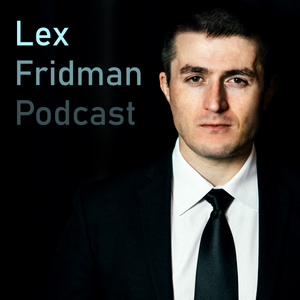
Lawns of the Future: Less Grass, Less Work
12/01/23 • 25 min
What does the lawn of the future look like? They will need to adapt to the changing climate and the hotter and drier summers in the PNW. That means less grass, which in turn means less watering, fertilizer, weeding and WORK!
Your home landscape could require far less maintenance and look more beautiful if you removed some of your grass. Welcome to this episode: Lawns of the Future, with gardener extraordinaire and speaker, Marianne Binetti. We discuss the reasons to remove some of your turf, how to transform your lawn, and the benefits you will see. Plus some of Marianne’s favorite plants, and her tried and true method to starting transforming your lawn into something new!
In this episode, we discuss:
What is the problem with grass? (1:00)
Letting your lawn go golden (2:00)
Biological deserts (3:30)
Good alternatives for lawn (4:45)
What are some of the issues with your lawn? (6:50)
How water and fertilizer needs change when you remove grass? (8:30 )
How do you get started with transforming your lawn? (10:13)
Why you shouldn’t use a sod remover (12:45)
Recap: Steps to take to transform lawn (19:37)
Replacing your lawn can cost nothing! (20:25)
Other resources (21:35)
Marianne Binetti is a northwest horticultural expert: Marianne has a degree in horticulture from Washington State University and writes a syndicated gardening column that runs in over a dozen newspapers each week including the The Tacoma News Tribune (Sundays) and The Daily Olympian (Saturdays). She has also written or co-written 10 gardening books including "Easy Answers for Great Gardens" and her latest book "Edible Gardening for Washington and Oregon" She lectures and gives seminars on a variety of topics, has appeared on HGTV and hosts radio and TV programs. Marianne leads garden tours around the world with her husband Joe.
Learn more about Cascade Water Alliance’s We Need Water Program
Follow us on Instagram and Facebook @weneedh20
Watch the episode on Youtube
What does the lawn of the future look like? They will need to adapt to the changing climate and the hotter and drier summers in the PNW. That means less grass, which in turn means less watering, fertilizer, weeding and WORK!
Your home landscape could require far less maintenance and look more beautiful if you removed some of your grass. Welcome to this episode: Lawns of the Future, with gardener extraordinaire and speaker, Marianne Binetti. We discuss the reasons to remove some of your turf, how to transform your lawn, and the benefits you will see. Plus some of Marianne’s favorite plants, and her tried and true method to starting transforming your lawn into something new!
In this episode, we discuss:
What is the problem with grass? (1:00)
Letting your lawn go golden (2:00)
Biological deserts (3:30)
Good alternatives for lawn (4:45)
What are some of the issues with your lawn? (6:50)
How water and fertilizer needs change when you remove grass? (8:30 )
How do you get started with transforming your lawn? (10:13)
Why you shouldn’t use a sod remover (12:45)
Recap: Steps to take to transform lawn (19:37)
Replacing your lawn can cost nothing! (20:25)
Other resources (21:35)
Marianne Binetti is a northwest horticultural expert: Marianne has a degree in horticulture from Washington State University and writes a syndicated gardening column that runs in over a dozen newspapers each week including the The Tacoma News Tribune (Sundays) and The Daily Olympian (Saturdays). She has also written or co-written 10 gardening books including "Easy Answers for Great Gardens" and her latest book "Edible Gardening for Washington and Oregon" She lectures and gives seminars on a variety of topics, has appeared on HGTV and hosts radio and TV programs. Marianne leads garden tours around the world with her husband Joe.
Learn more about Cascade Water Alliance’s We Need Water Program
Follow us on Instagram and Facebook @weneedh20
Watch the episode on Youtube
Previous Episode

What Is PFAS And Why Should I Care?
Do you know about PFAS? Have you ever wondered it it’s in your water? PFAS are a group of over 12,000 forever chemicals that are found in everyday products like nonstick pans, food packaging, rain gear, and even organic kale! It’s also being found in drinking water, and has negative impacts on human health and our environment. The US Geological Survey recently released a report about PFAS in the US water supply where they tested drinking water in over 700 homes across the US – and we are sharing the highlights in this episode.
Research Hydrologist, Kelly Smalling of the US Geological Survey discusses what PFAS is, the risks, safety levels, the hotspots for PFAS in the US, regulatory actions, and treatment technologies.
Link to USGS PFAS Map
In this episode, we discuss:
What is PFAS (2:00)
Where does PFAS come from? (3:05)
Is PFAS safe? (5:23)
How is the EPA responding to regulating PFAS now? (7:10)
What are the effects of PFAS? (9:40)
What is the maximum contamination level in drinking water for PFAS? (10:27)
Have industries changed the chemicals they are using and producing? (11:52)
What is the treatment technology to remove PFAS from drinking water? (13:00)
Why did the US Geological Survey create a report on PFAS? (13:55)
How many homes did you visit and test?
What results did you find in the water samples from US homes?
Where was PFAS detected?
What are the next steps for research? (21:59)
What should people take away from PFAS? (24:06)
Where can people find the USGS report on PFAS? (26:03)
What do you most enjoy about your job? (26:57)
Learn more about Cascade Water Alliance’s We Need Water Program
Follow us on Instagram and Facebook @weneedh20
Watch the episode on Youtube
Next Episode

Ripping Out Your Lawn
Welcome back to Season 2 of We Need Water! To kickoff our season we are speaking with Jessi Bloom about how to rip out your lawn. What are the benefits of doing this? Why would you do such a thing? And tips and tricks for how to plan your turf removal. We cover some of Jessi’s favorite tools, plants, and techniques for creating an outdoor space that requires less work and less water.
Jessi was born and raised in the PNW and has a strong background of horticulture and environmental sciences. Her early experience ranged in project management, from organizing restoration projects with community volunteers, to high-end residential and commercial landscape design/build. In early 2000, she decided to start an ethical business in the green industry to fill a niche for organic and ecological landscaping. Seattle Times named her a “rockstar in the ecological gardening movement“, with her leadership combined with artistic design talents she led N.W. Bloom to numerous environmental awards, traveling nationwide as a speaker and is the best-selling author: Free-Range Chicken Gardens (2012) Practical Permaculture Design(2015)which is now in 6 languages; and Creating Sanctuary: Sacred Garden Spaces, Plant Based Medicine and Daily Practices to Achieve Happiness and Well-Being (2017) and its companion workbook Everyday Sanctuary(2019) Jessi’s work has gotten press and been featured in many national and local media outlets from the NY Times, Better Homes & Gardens, Sunset Magazine, DISNEY, Martha Stewart Living, Mother Earth News, UTNE Reader, Fine Gardening Magazine and PBS’s Growing a Greener World TV.
Jessi is passionately committed to volunteering in the community and sits on several advisory boards within the green industry and educational/environmental organizations; hoping to empower people, also raising industry standards, and helped develop the EcoPro program for WA State. Currently she was appointed as an Agriculture Commissioner for King County, as well a member of the WA DNR Urban and Community Forestry Committee. She has 3 kids and spends time with them around their little farm, with a handful of animals and gardens to look after. When she is not working, she enjoys the outdoors: snowboarding, hiking, her horses, running, yoga, biking, rollerskating and stays strong with Olympic weightlifting.
Learn more about Cascade Water Alliance’s We Need Water Program
Follow us on Instagram and Facebook @weneedh20
Watch the episode on Youtube
If you like this episode you’ll love
Episode Comments
Generate a badge
Get a badge for your website that links back to this episode
<a href="https://goodpods.com/podcasts/we-need-water-279349/lawns-of-the-future-less-grass-less-work-38478168"> <img src="https://storage.googleapis.com/goodpods-images-bucket/badges/generic-badge-1.svg" alt="listen to lawns of the future: less grass, less work on goodpods" style="width: 225px" /> </a>
Copy




